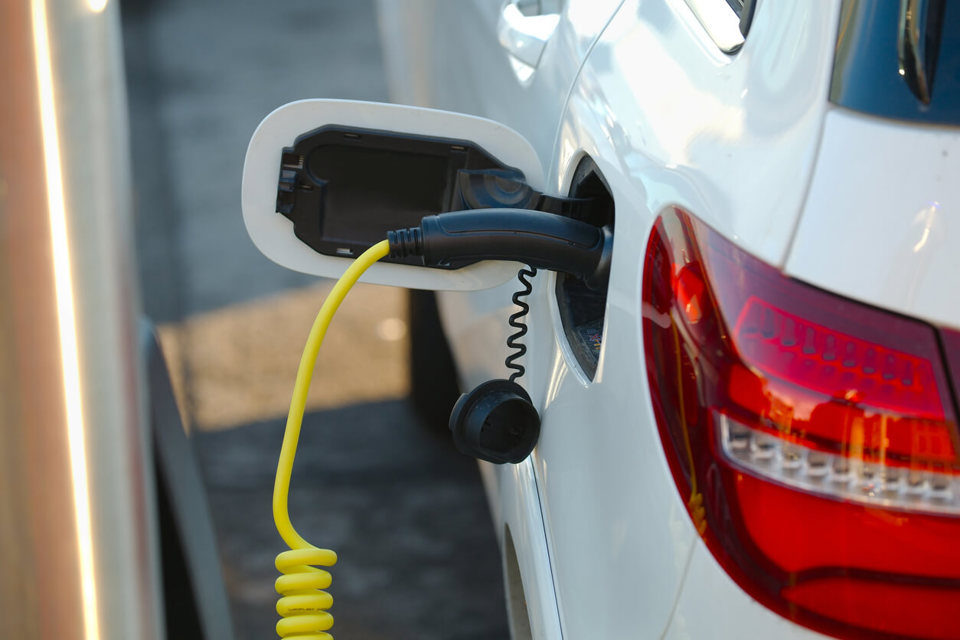The head of the Office for Low Emission Vehicles (OLEV) has hit back at electric vehicle (EV) sceptics with suggestions that public opinion on the technology is shifting.
The Department for Transport has reported that as of March 31, 8,724 claims had been made through the Plug-in Car Grant scheme. Almost a quarter of those claims (2,025) were made in the first three months of this year, despite the scheme running since 2010.
Richard Bruce, head of OLEV, said: “The tide is turning. We gave out 600% more in subsidies for new cars in January 2014 than we did in January 2013.”
At the start of the current parliament, OLEV received £400 million to support the move to ultra-low emission vehicles (ULEVs). But the policy came in for criticism after ministers admitted that only half the available subsidies for plug-in vehicles were likely to be claimed by motorists.
However, Bruce said: “This isn’t a failed policy. In fact, it’s just a long-term policy and one whose importance has been recognised in the recent spending review.”
OLEV has been allocated a further £500m between 2015 and 2020 to help drive the adoption of ULEVs.
“Initial projections and budgeting were based on the car companies’ estimates of how many units they would sell, which turned out to be wildly optimistic,” said Bruce.
Electric vehicle model line-ups are growing
“There are other issues as well. For the first few years very few cars were available.
“If you wanted to buy an estate to fit the dogs in the back or a sports utility vehicle, you had to buy a petrol or diesel car. That’s now changing, with manufacturers bringing a wider range of vehicles to market.”
Benefit-in-kind tax rates for ULEVS – defined by the Government as models with CO2 emissions of 75g/km and below- – will increase at a significantly faster rate over the next five years than for higher emissions cars.
The BVRLA accused the Government of a lack of low-emission logic, and suggested that company car tax measures announced in the Budget will do little, if anything, to accelerate the uptake of plug-in cars. Bruce, however, highlights the low running costs that fleets could enjoy by employing a plug-in vehicle.
“Electric motors are spectacularly more efficient than equivalent combustion engines, which have overall efficiencies of only around 20–30%, so for every £10 you put in the tank only around two to three pounds is actually helping you move forward – the rest is lost in heat and noise.
“You need less total energy to move an electric car because it’s so much more efficient and as the power grid in the UK decarbonises, so electrified vehicles will become relatively cleaner and cleaner.
“The efficiency benefits also mean startlingly low running costs. You can drive 100 miles on electricity for as little as £2.”
Charging infrastructure is another issue for fleets. OLEV claims that all the evidence shows that people will charge their cars at home or at work – 99% of all car journeys are less than 100 miles.
How much more charging infrastructure does UK need?
Bruce said: “The chicken and egg question is how much bigger a network is required than the 6,000+ charge points OLEV has funded to date.
“Plug-in hybrid cars, which many manufacturers expect to be best-sellers, can have ranges of up to 600 miles, and don’t need any public infrastructure to make longer journeys.”
Nevertheless, the Government announced an additional £9m towards improving the charging infrastructure in February, when it joined forces with Vauxhall, BMW, Nissan, Renault, Toyota and the SMMT to launch its Go Ultra Low campaign.
Whether the tide is truly turning, only time will tell and even Bruce recognises widespread adoption is some way off. He said: “This technology will only become normal when people see their neighbours plugging their car in to charge, see their colleagues driving one to work, or their friends booking a test drive.”
For more from Richard Bruce, the head of OLEV, click here.





















Patrioit - 09/05/2014 18:34
Let me see if I understand this: The government gives nearly £1 billion to a quango to promote the use of EV's and said quango says more and more people are buying EV's. Quelle surprise! Give £1 Billion subsidy to the housing and construction industry to build more affordable homes and watch housebuilding take off. Or £1 Billion to rebuild or update hospitals. Of course people will switch to EV's for city use if a subsidy is given, it's a no brainer. EV's are useless in counties such as Yorkshire, Lancashire, Cheshire, the North East, Wales and Scotland.